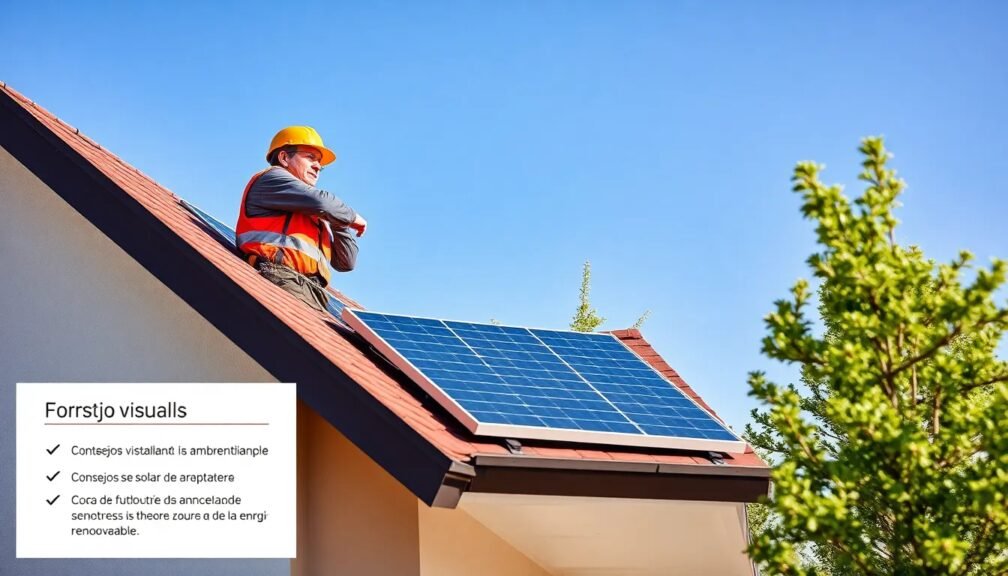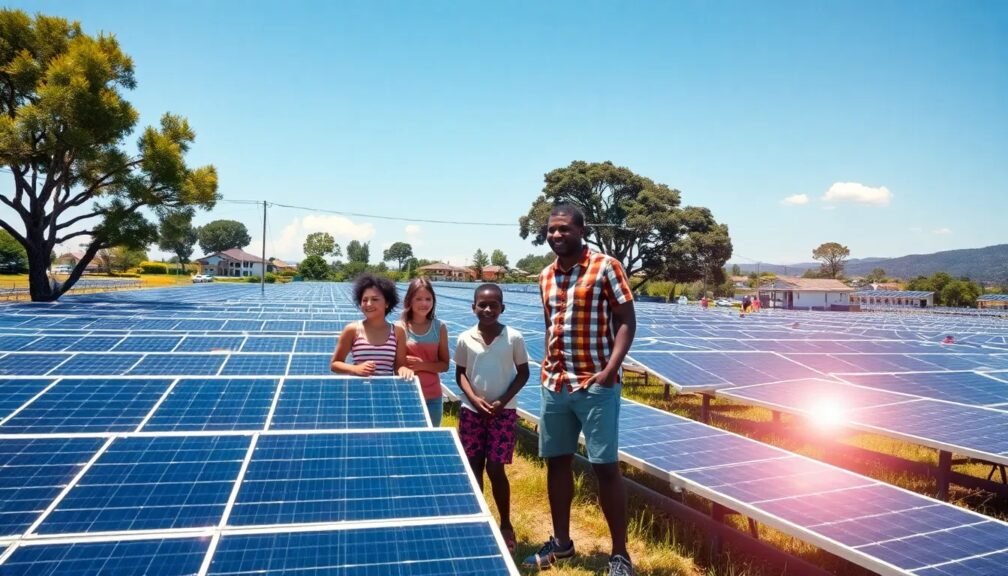In an era where sustainability and cost savings are paramount, solar energy has emerged as a viable solution for homeowners looking to reduce their electricity bills while contributing to a greener planet. With technological advancements and incentivizing government policies, harnessing the power of the sun has never been more accessible. In this article, we will explore how solar energy can unlock significant savings, the benefits of switching to solar, the different types available, and actionable insights for your home.
Understanding Solar Energy
What is Solar Energy?
Solar energy is derived from the radiant light and heat of the sun, which can be converted into electricity or heat through various technologies. The most common methods include photovoltaic (PV) systems, which directly convert sunlight into electricity, and solar thermal systems, which capture heat for residential use. As solar technology evolves, homeowners are increasingly tapping into this renewable resource to power their homes.
Why Choose Solar Energy?
The advantages of utilizing solar energy are numerous:
-
Cost Savings: Reducing your monthly utility bills is one of the most compelling reasons to consider solar. By generating your own electricity, you can minimize or even eliminate your dependency on grid power.
-
Environmental Impact: Using solar energy reduces greenhouse gas emissions, thereby helping combat climate change. By investing in solar, you’re making a positive contribution to the environment.
-
Energy Independence: Solar power helps homeowners become less reliant on fossil fuel sources, thereby insulating them from fluctuating energy prices.
-
Increased Property Value: Homes equipped with solar energy systems often see an increase in property value. Potential buyers are increasingly attracted to homes that offer energy efficiency.
The Financial Benefits of Solar Energy
How Does Solar Energy Save You Money?
-
Lower Electricity Bills: By generating your own energy, you consume less grid electricity. Most homeowners report a reduction of 50% to 80% on their monthly electricity bills after installing solar panels.
-
Net Metering: Many areas offer net metering policies that allow you to sell excess energy back to the grid. This not only offsets your costs but can also provide you with an additional income stream.
-
Tax Incentives and Rebates: Federal and state incentives significantly reduce the upfront cost of installing solar systems. The Federal Investment Tax Credit (ITC) allows homeowners to deduct a percentage of their solar installation costs from their federal taxes.
-
Low Maintenance Costs: Once installed, solar panels require minimal maintenance. With most systems lasting over 20 years, the long-term savings can be substantial.
Initial Investment and Long-Term Savings
Understanding the initial cost of solar energy installation is crucial. Though the upfront costs can vary, the long-term savings typically outweigh these initial investments. According to solar industry data, homeowners can expect to break even on their solar panel investment in around 5 to 10 years, depending on local energy rates and incentives.
Financing Options for Solar Energy Systems
If upfront costs are a concern, several financing options can make solar energy more accessible:
-
Solar Loans: These allow you to buy a solar energy system while paying it off over time. Monthly payments can be lower than your utility bill.
-
Leasing: Another option is to lease solar panels, which allows homeowners to use the energy produced without purchasing the system outright.
-
Power Purchase Agreements (PPA): In a PPA, a third party installs solar panels on your property, and you agree to buy the energy they produce at a predetermined rate.
Types of Solar Energy Systems
Photovoltaic (PV) Systems
PV systems are the most common residential solar energy solutions. They consist of solar panels that convert sunlight into electricity, which can directly power your home or be stored in batteries for later use.
Solar Thermal Systems
Solar thermal systems use sunlight to heat water for use in residential heating, swimming pools, or domestic hot water. This technology can significantly cut down your energy bills.
Hybrid Systems
Some homeowners opt for hybrid systems, combining both PV and thermal systems, enhancing energy production and efficiencies.
Factors Influencing Your Solar Energy Savings
Location
The amount of sunlight your home receives is crucial for maximizing the efficiency of your solar energy system. Homes located in sunny states generally see higher savings and faster returns on investment.
System Size
Determining the right size for your solar energy system is essential. A system should be tailored to meet your household’s energy needs while accounting for any future increases in energy consumption.
Local Incentives and Regulations
As previously mentioned, federal and state incentives can significantly impact the total cost of solar installation. It’s important to research local policies, rebates, and any potential restrictions that may apply.
Installation Process of Solar Energy Systems
Consultation and Assessment
The first step in the solar installation process involves consulting with a reputable solar company. They will assess your home’s energy usage, available roof space, and sunlight exposure to recommend the best system type and size.
Installation
Once you select a system and financing option, your solar panels will be installed. The installation can typically be completed within one to three days.
System Activation
After installation, your system will be activated and connected to the grid (if applicable). A professional will ensure that everything meets safety standards.
Monitoring Performance
Most solar energy systems come with monitoring tools that allow homeowners to track energy production and usage. Regular monitoring can help address issues early and ensure you’re getting the most out of your investment.
Actionable Insights for Embracing Solar Energy
-
Assess Your Energy Needs: Start by examining your monthly electricity bills and energy consumption patterns.
-
Research Incentives: Look into federal and state incentives that could lower your installation costs.
-
Get Multiple Quotes: Contact several solar providers to ensure competitive pricing and options.
-
Consider Future Energy Needs: Plan for potential increases in energy consumption to avoid under-sizing your system.
-
Read Reviews: Select a solar provider with a strong reputation and reviews from satisfied customers.
-
Stay Informed: Continue to educate yourself about solar technology and potential advancements.
Conclusion
Switching to solar energy for your home can unlock a wealth of savings while promoting environmental sustainability. From reducing your electricity bills to enhancing your property value, the benefits of solar energy are clear. As a renewable energy source, solar not only empowers you to take control of your energy costs but also connects you to a larger movement focused on a sustainable future.
Embrace solar energy today and begin your journey toward significant savings and a greener tomorrow. With careful planning and the right resources, harnessing the sun’s power can take your household savings to new heights.



